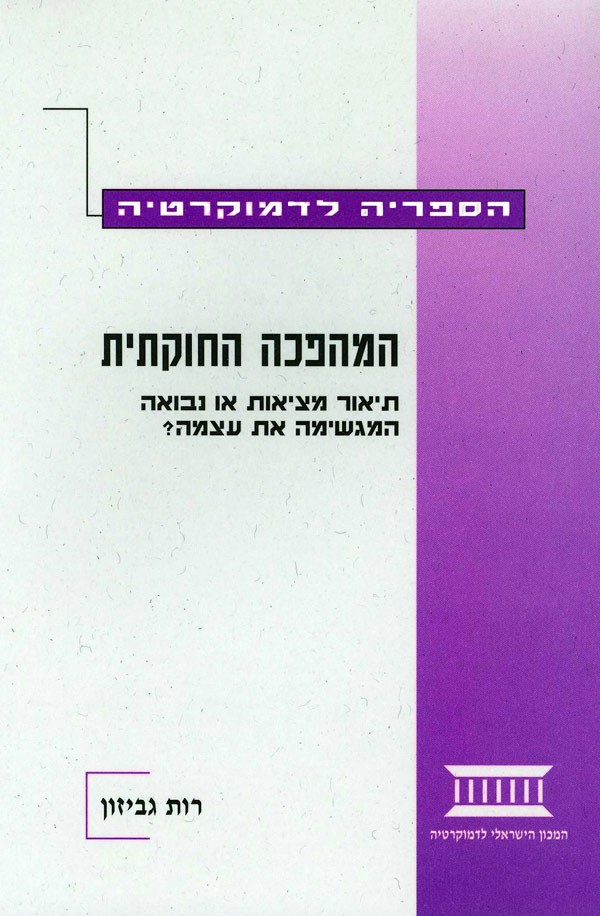The Constitutional Revolution
Reality or Self-Fulfilling Prophecy?
- Written By: Ruth Gavison
- Publication Date:
- Cover Type: Softcover | Hebrew
- Number Of Pages: 146 Pages
- Price: 65 NIS
A discussion of the constitutional revolution proclaimed in Israel with the passage of the Basic Laws of 1992, which assesses the role of a constitution in a democratic society, describes the constitutional process in Israel, and discusses the contribution of revolutionary discourse to the constitutional process in Israel.
This book describes and evaluates the “constitutional revolution” in Israel that was declared after the passage of the Basic Laws of 1992. It begins by examining the nature and purpose of a constitution in a democratic society. It then describes the constitutional process in Israel, from the Proclamation of Independence to the Harari decision, through the passage of the Basic Laws of 1992, and the developments since then. On the basis of this review, the book summarizes the contribution of revolutionary discourse to an ideal constitutional process in Israel.
The book’s fundamental claim is that using the term “constitutional revolution” to describe the enactments of 1992 is misleading and even dangerous. Though these laws are an important development in the constitutional process that has taken place since the founding of the state, they are not a “revolution.” Even in their wake, Israel does not have a constitution, or even the consensus necessary for a constitution. Moreover, speaking in terms of a “constitutional revolution” is liable to accelerate the completion of a constitution that will not be appropriate, neither in terms of its content, nor in terms of the necessary underlying consensus, nor in terms of the need for participation of the various sectors of the Israeli population in drafting and ratifying it. The shortcut encouraged by the “constitutional revolution” discourse is a bad idea, and it is not appropriate for the Court to be seen as the initiator and catalyst of this revolution. Israeli society should undertake the task of creating a suitable constitution through appropriate means, after an honest struggle with the questions of why a constitution is necessary, and what the best way would be to adopt one, given the complex conditions of the State of Israel today. The Court would then be able to fulfill its critical role in carefully enforcing the constitution.
The book takes a stand on a central issue of Israel’s public debate and emphasizes that this position depends on an evaluative academic foundation. Readers who are primarily interested in the practical aspects of this work rather than the theoretical and historical framework are advised to read the introduction and then skip to the third section of the book.

